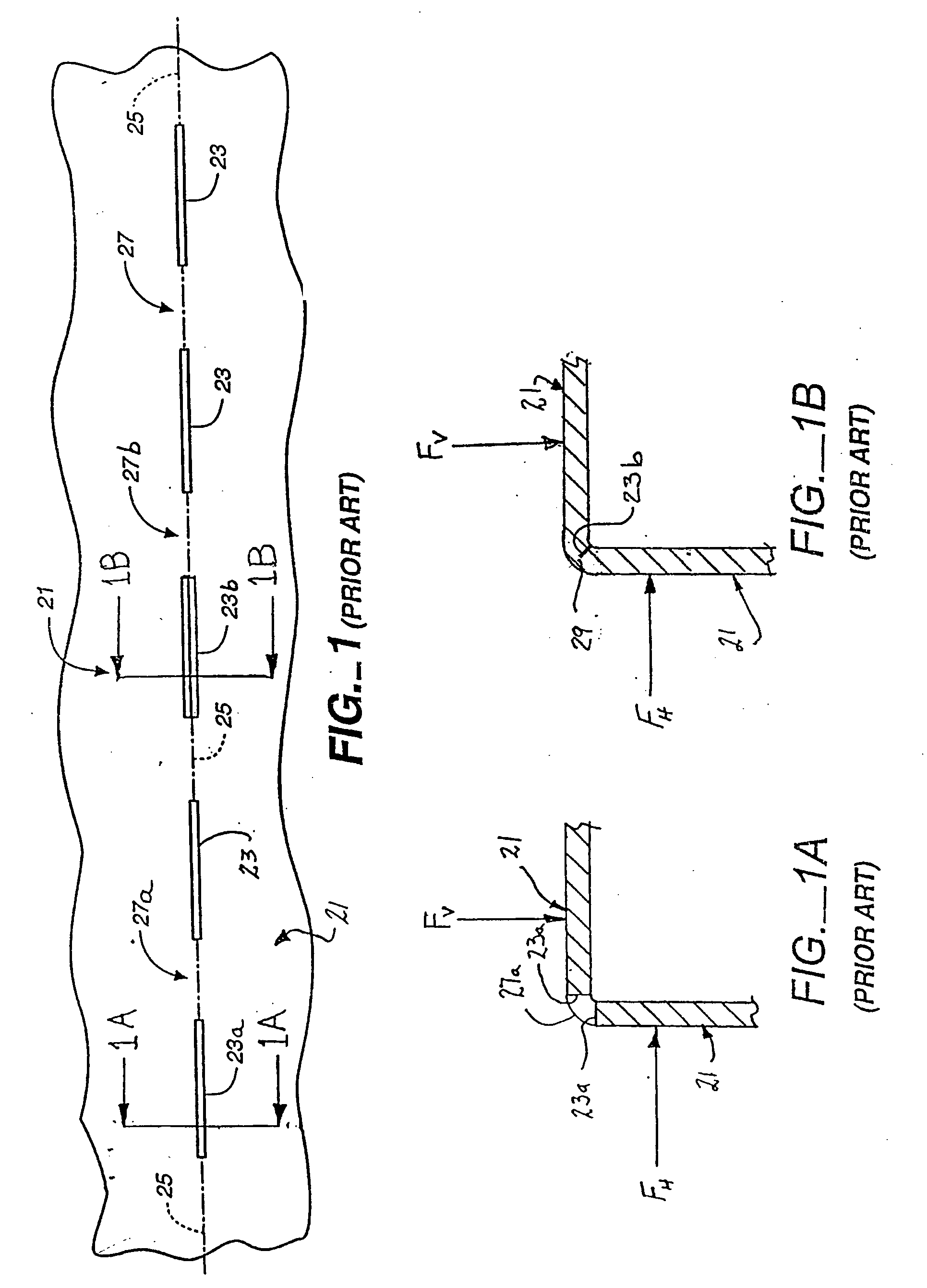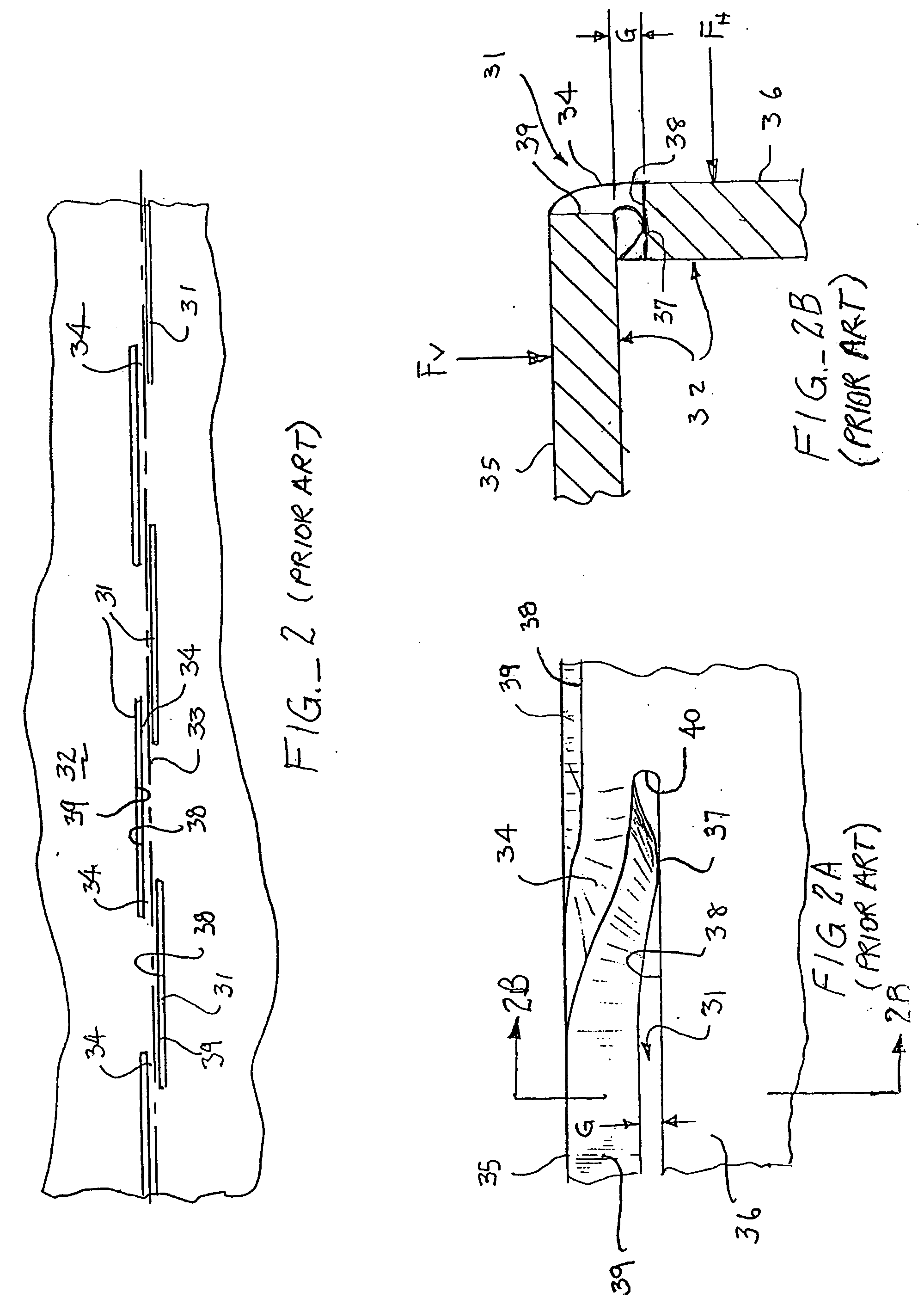Techniques for designing and manufacturing precision-folded, high strength, fatigue-resistant structures and sheet therefor
a technology of fatigue-resistant structures and folding sheets, applied in the direction of synthetic resin layered products, textiles and paper, building components, etc., can solve the problems of cumulative tolerance errors, difficult control of bend location, and insignificant cumulative tolerance errors in bending, so as to improve the bend location and improve the bend strength
- Summary
- Abstract
- Description
- Claims
- Application Information
AI Technical Summary
Benefits of technology
Problems solved by technology
Method used
Image
Examples
second embodiment
[0126] It has been found that the embodiment of FIGS. 3-5C'" is best suited for use with relatively ductile sheet materials. As the material becomes harder and less ductile, a second embodiment is preferred.
[0127] In the embodiment of the present invention shown in FIGS. 6-8B a slitting configuration is employed which tucks or clamps the sheet material into interengaged relation on both sides of the slits, and also reduces bending strap plastic deformation and the residual stress in the straps. Moreover, this embodiment also allows the strap width to be varied independently of the jog distance between slits and to have the strap width increase in both directions from the bend line for less stress concentration in the connected portions of the sheet of material on opposite sides of the bend line.
[0128] A bending strap which is oblique to the bend line is employed, which allows the strap length to be increased, as compared to the shorter bending straps of FIGS. 3-5C'". Plastic deforma...
first embodiment
[0134] As was the case for the first embodiment, slit kerfs 243 preferably have a width dimension, and the transverse jog distance across the bend line between slits is dimensioned, to produce interengagement of sheet material on opposite sides of the slits during bending. Thus, slits 243 can be made with a knife and have essentially a zero kerf, or they can have a greater kerf which still produces interengagement, depending upon the thickness of the sheet being bent. Most preferably the kerf width is not greater than about 0.3 times the material thickness, and the jog distance is not greater than about 1.0 times the material thickness.
[0135] As was the case for the embodiment of FIGS. 3-5C . . . , a lip portion 253 extends across bend line 245 to slit 243. Lip 253 slides or rides up a face 255 of a tongue 260 on the other side of slit 243 if the kerf width and jog distance, relative to the thickness of the material, are not so large as to prevent contact between the two sides of th...
PUM
| Property | Measurement | Unit |
|---|---|---|
| angles | aaaaa | aaaaa |
| angles | aaaaa | aaaaa |
| stress | aaaaa | aaaaa |
Abstract
Description
Claims
Application Information
 Login to View More
Login to View More - R&D
- Intellectual Property
- Life Sciences
- Materials
- Tech Scout
- Unparalleled Data Quality
- Higher Quality Content
- 60% Fewer Hallucinations
Browse by: Latest US Patents, China's latest patents, Technical Efficacy Thesaurus, Application Domain, Technology Topic, Popular Technical Reports.
© 2025 PatSnap. All rights reserved.Legal|Privacy policy|Modern Slavery Act Transparency Statement|Sitemap|About US| Contact US: help@patsnap.com



